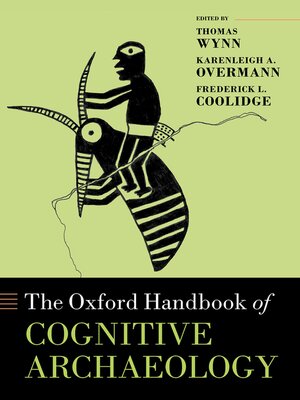
Sign up to save your library
With an OverDrive account, you can save your favorite libraries for at-a-glance information about availability. Find out more about OverDrive accounts.
Find this title in Libby, the library reading app by OverDrive.



Search for a digital library with this title
Title found at these libraries:
| Library Name | Distance |
|---|---|
| Loading... |
Cognitive Archaeology is a relatively young though fast growing discipline. The intellectual heart of cognitive archaeology is archaeology, the discipline that investigates the only direct evidence of the actions and decisions of prehistoric people. Its theories and methods are an eclectic mix of psychological, neuroscientific, paleoneurological, philosophical, anthropological, ethnographic, comparative, aesthetic, and experimental theories, methods, and models, united only by their focus on cognition. The Oxford Handbook of Cognitive Archaeology is a landmark publication, showcasing the theories, methods, and accomplishments of archaeologists who investigate the human mind, including its evolutionary development, its ideation (thoughts and beliefs), and its very nature-through material forms. The volume encompasses the wide spectrum of the discipline, showcasing contributions from more than 50 established and emerging scholars from Europe, Africa, Asia, Australia, and the Americas. Prominent among these are contributions that discuss the epistemological frameworks of both the evolutionary and ideational approaches and the leading theories that ground interpretations. Significantly, the majority of chapters deliver substantive contributions that analyze specific examples of material culture, from the oldest known stone tools to ceramic and rock art traditions of the recent millennium. These examples include the gamut of methods and techniques, including typology, replication studies, chaînes operatoires, neuroarchaeology, ethnographic comparison, and the direct historical approach. In addition, the book begins with retrospective essays by several of the pioneers of cognitive archaeology, presenting a broad range of state-of-the-art investigations into cognitive abilities, tackling thorny issues like the cognitive status of Neandertals, and concluding with speculative essays about the future of an archaeology of mind, and of the mind itself.







